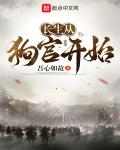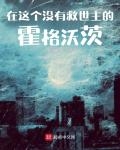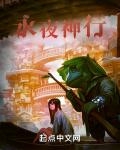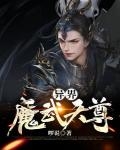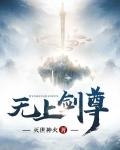Chapter 217: I, as a commoner, wielding a three-foot sword, conquered the world. Isn't this destiny?
The fourth option was one that Su Che had encountered once before.
That was a long time ago.
At that time, Su Che, in that simulation, received the favor of three mythical heroes at the same time.
The scene was so spectacular that Su Che still remembers it vividly.
So much time has passed in the blink of an eye.
At that time, two of the three heroic spirits had already been successfully contracted by Su Che.
One is the first simulation of Ying Zheng.
One is the most recent simulation of Zhu Yuanzhang.
Su Che was lucky enough to get their recognition.
After such a long time, we still haven’t seen the last legendary figure.
Su Che guessed that he was most likely not going to be with him.
After all, I missed it once.
However, mythical heroes have their own dignity and will not give you another chance.
Lao Zhu is already an exception.
How could there be a second exception?
However, what I didn't expect was.
There is indeed an exception!
Su Che once again got the opportunity given by this mythical heroic spirit.
This person, if nothing unexpected happens, is most likely the founding emperor of the Han Dynasty, Emperor Taizu of Han, Liu Bang!
This person's abilities are extraordinary.
The fact that he can identify and appoint the right people to the right positions, accept advice with an open mind, and fully utilize the talents of his subordinates are already very impressive.
Many great historical figures have one of these three qualities, which is enough to make them qualified to be kings.
Know people and assign them to the right positions, identify whether they are talented or mediocre, and assign them corresponding tasks.
It is a very difficult thing to be able to accept advice from others with an open mind.
As for making full use of the talents of subordinates, this is even more outrageous. Being able to see clearly what positions talents are more suitable for, placing them in positions that suit them, and bringing out more of their talents, this cannot be accomplished without an extremely sharp vision.
A great man once commented on Liu Bang, saying that he was the most powerful among the feudal emperors.
What I am talking about here is his outstanding personal ability.
In terms of military capabilities, Zhu Yuanzhang more capable.
But when it comes to making good use of talents, Liu Bang is obviously more capable.
but.
Liu Bang also had his own frustration and unwillingness.
That was in his later years, when power fell into the wrong hands, leading to external relatives completely interfering in politics and even on the verge of overthrowing the Han Dynasty.
The Lu family is different from ordinary in-laws.
They are not only relatives by marriage, but also nobles and original shareholders of the Han Group.
In addition, after Liu Bang became emperor, the power in his hands was not stable.
Every now and then there are people rebelling, and we are either suppressing the rebellion or on the way to suppressing it.
Because he often had no time to handle state affairs, it was almost natural for Lu Zhi to handle them on his behalf.
At this point in time in the early Han Dynasty, there was no rule that "foreign relatives are not allowed to interfere in politics."
The reason why these rules exist in later generations is because of the lessons learned from past dynasties.
Speaking of Lu Zhi, she was not only a ruthless person, but also a capable person.
During the time she handled state affairs, she rapidly improved her political theory, continuously built a deeper political background, and established her own prestige.
As Lu Zhi's prestige grew, it became basically impossible for Liu Bang to get rid of the power of his external relatives.
If Liu Bang was still young.
Then all of this is not a problem. Everything will be solved slowly with the passage of time.
Unfortunately, what Liu Bang lacked most was time!
You have to know that what Lu Zhi had was not only the status of queen, but also the support of the Lu family behind her.
The Lu family was so powerful that even Liu Bang was wary of them.
Although for some reasons, history books do not clearly record the achievements and power of the Lu family, we can still restore the full picture of the matter from some fragments recorded in history books.
The "Chronological Table of the Meritorious Officials and Marquises of Emperor Gaozu" in the "Records of the Grand Historian" states: "When Empress Lü's brother first rose up, he followed the Han Dynasty as a guest and was made a marquis. When he returned to conquer the Three Qins, he led his troops to enter Dang first. When the King of Han released Pengcheng, he went to follow him and again led his troops to help Emperor Gaozu conquer the world and was made a marquis.
"Records of the Grand Historian: The Biography of Xiang Yu" wrote: At that time, Empress Lü's brother, Marquis of Zhou Lü, was a general of the Han army and lived in Xiayi. The King of Han occasionally went to follow him and gradually recruited his soldiers.
The translation is:
Lu Ze, the elder brother of Empress Lu, was a "guest follower" in Liu Bang's team.
To a certain extent, it means obeying orders but not announcements. It is not a subordinate relationship but a cooperative relationship. He is a shareholder of Liu Group, not an employee.
Judging from the situation of Liu Bang's final ennoblement, there were only 12 people who were able to be ennobled as "guest followers", including the two brothers Lu Ze and Lu Shizhi.
When Liu Bang was named King of Han, Lu Ze was granted a title of marquis by Liu Bang (entering the Han Dynasty as a marquis).
Later, when Liu Bang counterattacked Guanzhong, there was Lu Ze (who also pacified the Three Qins).
Then, Lu Ze led his troops out alone to open up the land (leading his troops into Dang first).
The "Dang" here refers to Empress Lü's hometown. They were originally from Shanfu County, Dang County, but moved to Pei County to avoid hatred.
Later, as many as 23 people from Dang County were granted titles of nobility by Liu Bang due to their great contributions, and almost all of them were related to the Lu family.
This shows.
The Lu family not only has a long history and high prestige, but also has many direct descendants with outstanding achievements.
In the Battle of Pengcheng, Liu Bang was chased and attacked by Xiang Yu. It was Lu Ze who helped him block Xiang Yu. Later, it was Lu Ze who sent troops to help him make a comeback.
The Annals of Marquises says that Lü Ze "raised troops again to help Emperor Gaozu conquer the world."
What is the concept of this?
Evaluations like "helping to stabilize the world" are usually only used for people like the "Three Heroes of the Early Han Dynasty".
From this we can see that the Lu family is definitely not an ordinary family of relatives.
If it weren't for the powerful officials and nobles of the Western Han Dynasty who directly killed the entire Lu family, the Han Dynasty would most likely have perished in the second generation.
If two consecutive unified dynasties perished in the second generation.
Perhaps history would have developed in a completely different, even opposite direction.
However, there are no ifs in history.
Su Che pondered over this forgotten history.
It is inevitable that there will be some hesitation or even concerns.
If he were asked to simulate Liu Bang.
So what problem does Su Che want to solve?
Is it a problem of power falling into the hands of others in old age and external relatives interfering in government affairs?
This problem is indeed a problem that Liu Bang has always been worried about.
He had a long-term vision and knew that after his death, his in-laws would become powerful.
So whether he wanted to kick Liu Ying off the chariot when he was escaping, or he deposed the crown prince in his later years and supported Liu Ruyi to take the throne, he was fighting against the Lu family group.
However, none of these were successful.
Liu Bang's later years were miserable and he became a real loner.
In order to prolong their own political lives, the group of meritorious officials who had been loyal to him in the past, such as Zhang Liang and Chen Ping, all stood behind Lu and supported the prince.
The Four Elders of Shangshan came out to support the Crown Prince, but Emperor Liu Bang was unable to invite the Four Elders of Shangshan.
On the surface, everyone supports the prince, but in fact they are completely on the side of the Lu Group.
Everyone knows it very well.
You, Liu Bang, are old and about to die. There is no future in following you.
If you continue to follow the emperor, you will be eliminated by the Lu group sooner or later.
For example, Han Xin.
This war nuclear weapons-level boss followed Liu Bang wholeheartedly because of Liu Bang's kindness.
As a result, when Liu Bang was gone, he was openly killed by Empress Lu on the charge of rebellion.
When Fan Kuai, Lu Zhi's brother-in-law, tried to win over Han Xin, even though Han Xin knew that he would die sooner or later if he stood on the emperor's side, Han Xin still didn't care. Death was nothing to him.
As the saying goes, a gentleman will die for his confidant. Liu Bang was kind to him, so why wouldn't it be wrong for him to die for him?
Many ministers were well aware of these things, but for their own interests, they all stood silently on the side of the Lu family's in-laws.
Liu Bang could do nothing about it.
In his early years, he relied on his own abilities to unite a large number of talents, absorbed the armies and advisers of various countries, including the talents under Xiang Yu and other kings, and established the Han Dynasty.
But in his later years, he could only watch his dynasty being eroded.
An interesting thing.
Before Liu Bang died, Empress Lü asked: "After your majesty is 100 years old, who will succeed Xiao He as prime minister?"
The emperor said, "Cao Shen is suitable."
Empress Lü asked what came next.
The emperor said, "Wang Ling is suitable. However, Ling is a little stupid, so Chen Ping can help him. Chen Ping is smart, but he cannot be in charge alone. Zhou Bo is honest and sincere but not cultured, but the one who can protect the Liu family must be Bo, so he can be appointed as the Grand Commandant."
Empress Lü asked again what came next.
The emperor said, "From now on, you are not aware of this either."
To some extent, this was the last plan Liu Bang set before his death.
Empress Lü had great confidence in Liu Bang's ability to judge people, so she followed Liu Bang's arrangements.
As a result, as soon as Empress Lu died, the group of meritorious officials who were dissatisfied with the Lu family group immediately counterattacked and exterminated the Lu family.
The person who was the leader and the first to bear the brunt was none other than the Grand Commandant Zhou Bo!
It seemed as if Liu Bang had anticipated all this.
It is hard not to say that Liu Bang was behind this.
Of course, all this has a prerequisite, that is, Emperor Hui of Han, Liu Ying, did not die early!
If Liu Ying had not died, the Lu family would not have suffered such a miserable fate.
After the fall of the Lü clan, even the achievements of the Lü family were hidden.
There were three groups in the early Han Dynasty
At first, the Liu family group headed by Liu Bang occupied a dominant position and had the final say.
When Liu Bang grew old, the group of meritorious officials moved closer to the Lu family group, which also created the glory of the Lu family group.
After Lu Zhi came to power, she openly violated the agreement of the White Horse Alliance that only Liu could be king, and she appointed many members of the Lu family as kings. She persecuted other members of the Liu royal family except her own children. She was extremely excessive.
also.
As the power of the Lu family group expanded, it was inevitable that it would divide up the profit pie that originally belonged to the group of meritorious officials, which also laid the groundwork for future tragedies.
After the group of meritorious officials destroyed the Lu family group, they supported Liu Heng as emperor.
But it accidentally created the beginning of the glory of the Western Han Dynasty.
Liu Heng was Emperor Wen of Han. From ancient times to the present, there are only a handful of emperors who have the posthumous title of "Wen".
Liu Heng's son was Emperor Jing of Han. The period during which the two of them reigned was known in history as the Reign of Emperor Wen and Emperor Jing.
It was because of the rule of these two people, Wen and Jing, that a solid foundation was laid for Emperor Wu of Han, Liu Che, and the prerequisite was provided for his "warmongering".
Of course, this is a later story.
Su Che frowned and thought about these things seriously, wondering what Lao Liu was thinking and how he should break the deadlock?
At this moment, Su Che has put all his thoughts on the last option.
Su Che was very interested in the first three options.
Whether it is Sun Bin, Huo Guang, or Wang Mang.
There is no doubt that they are all outstanding individuals.
Sun Bin was a descendant of Sun Tzu and a master of military strategy.
Huo Guang was a famous powerful official in the Western Han Dynasty. He could even depose and enthrone emperors easily. If the emperor was not satisfied, he would replace him!
This person undoubtedly stood at the pinnacle of the ministers.
Although his ending was not very good.
But that's exactly what happened.
The problem this one gave was also particularly obvious, most likely how to get the Huo family out of this situation unscathed...
This is indeed a difficult problem, but as long as you solve it, you will get Huo Guang's recognition!
also.
Let me talk about the three of them.
The person Su Che was most interested in was Wang Mang.
In Su Che's previous life, many people teased this person as a time traveler.
His opponent, Liu Xiu, is the 'Son of the Plane', and can even summon giant meteorites.
The drama of the time traveler fighting against the son of the plane has been talked about by many people with relish.
The reason why Wang Mang was called a time traveler was mainly because of his policies and inventions.
For example, his reforms to the land system, economic system, and slavery system, as well as many of his modern inventions, such as the vernier caliper, did not seem to be products of that era.
Although Wang Mang's reforms were in the right direction, they were doomed to fail.
As the saying goes, political power grows out of the barrel of a gun. Although Wang Mang became emperor, he was not strong enough and did not have enough prestige and power. Naturally, his hasty reforms would have difficulty succeeding.
There is one prerequisite for large-scale reform.
That is, the ruling power must be strong enough.
At the end of the Western Han Dynasty, the administrative system had no executive power. It was weak against powerful landlords at the local level and had no way to deal with the royal family at the central level. Moreover, it was extremely corrupt internally. How could it be reformed?
If reform is to be carried out, the power of the nobles and powerful must be weakened, and then the administration of officials must be rectified, the government's reputation and control in the local area must be strengthened, and then taxes and corvee labor must be reduced in order to gain higher prestige.
Only in this way can major institutional reforms succeed.
Wang Mang's reforms were too fantastic. He believed that as long as the policies were good and they were implemented smoothly, the world would prosper.
This idea is really too simplistic.
Su Che also carried out these reforms of Wang Mang.
The reason why Su Che was successful was that he started out as a rebel. First, he had absolute control and enough authority and prestige. Second, the group had not yet been corrupted. Third, there was still a lot of profit to be gained, so there was no need to focus on the land.
Although Wang Mang was in a high position and had great power, and even usurped the throne, in fact, the essence of power is not from top to bottom, but from bottom to top. Without support from below, nothing you can do will succeed.
If Su Che were to imitate Wang Mang, he would probably be able to avoid many mistakes and eventually succeed.
What a pity...
Although the first three options were very tempting, the last option was something Su Che could not refuse.
This person is a mythical being, so it will undoubtedly be more difficult, but once successful, the rewards will naturally be greater!
After thinking for a long time, Su Che no longer hesitated and directly chose the fourth option!
As soon as the thought came out.
The other three options slowly disappeared.
The fourth option disappears last.
On the Book of Spirit Contract, these words slowly emerged:
"I am a commoner holding a three-foot sword and conquering the world. Isn't this destiny?"

